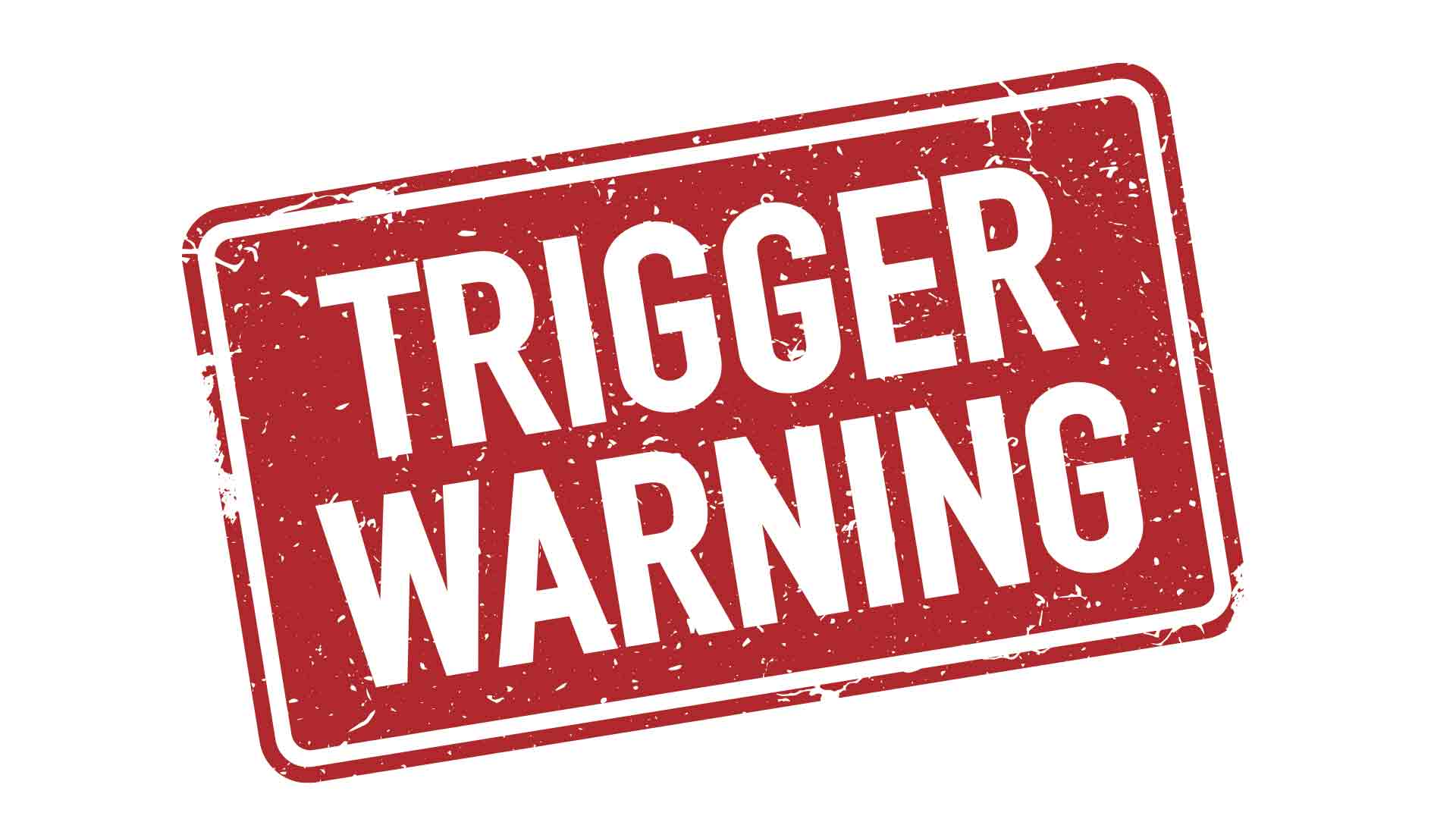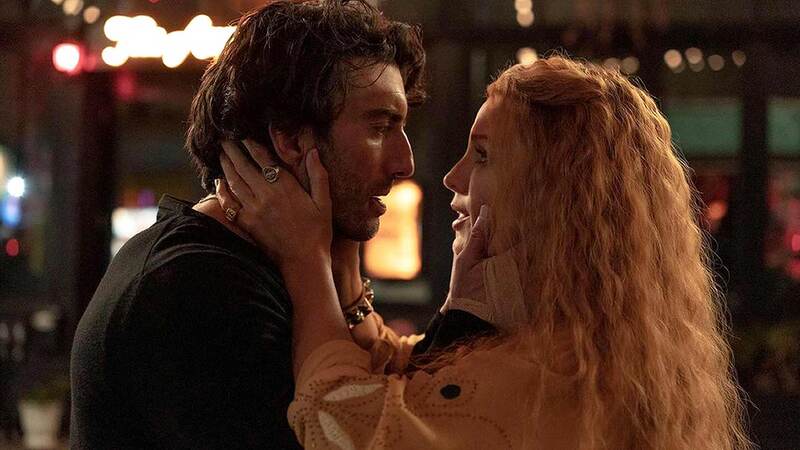You are viewing your 1 free article this month. Login to read more articles.
The case for trigger warnings
Trigger warnings are a simple way to prevent harm. So why do people find them so... triggering?
When Joanne Harris tweeted a thread about the value of trigger warnings some responses, perhaps predictably, blew it all out of proportion. "Censorship" was mentioned, as was "woke nonsense"— and the Daily Mail picked up on it too (in my opinion they probably went for it because they knew it would "trigger" their readers into angrily engaging with their article on it.)
The term "trigger warning", ironically, does trigger some people—people who get their knickers in a twist because they feel we are going0 "too far". Indeed, we’ve had to defend the case for some time—and this isn’t the first article The Bookseller has published on the subject. But adding a trigger warning or, as one of Joanne Harris’ followers suggested we call it, a "content warning", doesn’t negatively affect anyone. And yet, reading a book that includes scenes of domestic abuse or sexual violence when you’ve been through something similar could cause serious distress or trigger a PTSD relapse. Put simply, it could make someone ill.
That’s not to say we shouldn’t write about these things. Nobody is talking about censorship or banning books. I regularly write about difficult topics and I think it’s important to raise awareness of certain issues. But I don’t believe I should force the subject on people unwittingly.
When my agent submitted my book, The Twenty Seven Club (a book I wrote to challenge stigma around addiction and mental illness), to publishers in early 2020, we included a trigger warning in the submission package. The book contained references to suicide and drug taking and, while many people wouldn’t be at all affected by this, we couldn’t assume that the editors we were pitching to wouldn’t be. How could we know if an editor was bereaved by suicide or recently in recovery from addiction?
If we’ve been through something traumatic, we shouldn’t have to wear a T-shirt stating the fact in order to avoid potentially distressing situations or conversations. It’s not our responsibility to tell the world. That will only cause more distress. But if the world can make life that little bit easier, without cost or hardship, then why on earth are we even debating it?
The thing I find most bizarre about the backlash to our ‘woke’ trigger warning culture is the fact that we have, in some shape or form, always had trigger warnings in the media
Sure, there’s the issue of spoilers. But there are ways around that. In Joanne Harris’ tweets she suggests using the copyright page as a standard place for trigger or content warnings (I actually prefer the latter as a term - on a similar note I previously argued in The Bookseller that I preferred "authenticity reader" to sensitivity reader). Many people don’t read the copyright page, but if we know it’s the standard place to go we can check for anything that might be distressing. Someone else suggested we use the back of the book. It certainly doesn’t have to be plastered all over the cover. And on the subject of spoilers, in many cases, we’re not even giving twists away anyway. I am working on a book that explores society’s responses to sexual violence—but saying that gives away nothing of the plot and none of the twists. It’s the underlying theme. I don’t need to say X character experiences X in order to provide an effective content warning.
We need diverse stories and we need to raise awareness of difficult issues. In fact, I wouldn’t be surprised if many people who agree with trigger warnings are also proactively putting this potentially triggering content out into the world —so they certainly wont want to be censoring it. I certainly won’t be. Life isn’t black and white—it’s not about either/or—but if we can make it our business to be transparent, considerate and empathetic we can make sure literature is both impactful and safe. And when I talk of impact—it’s more than just awareness raising—stories (both real life and fictional) can affect significant change for the better through policy making, increased funding and of course decreased stigma.
I work with the charity Action on Postpartum Psychosis. We raise awareness of the little-known postnatal mental illness postpartum psychosis, and we share people’s stories—some of which are particularly distressing. And we know that some people experience PTSD after being mentally unwell. But we will continue to share these stories in order to improve treatment and decrease stigma. After all, we can’t affect change if people don’t see the consequences of doing nothing. However, when sharing these personal stories with our community, we will always mention if it references suicide or self harm. We need these stories, but we don’t want to harm anyone in the process when we are campaigning for change.
The thing I find most bizarre about the backlash to our "woke" trigger warning culture is the fact that we have, in some shape or form, always had trigger warnings in the media. It just so happens that in the past we were seemingly more concerned about "triggering" someone who might be slightly offended by "profanity" than we were about showing a deeply distressing scene of suicide or sexual violence.
If we’re going to head into the "snowflake" rhetoric on this topic—which do you think makes somebody more sensitive? The fact they get offended by the word "f**k" or the fact they are distressed by sexual violence?
















